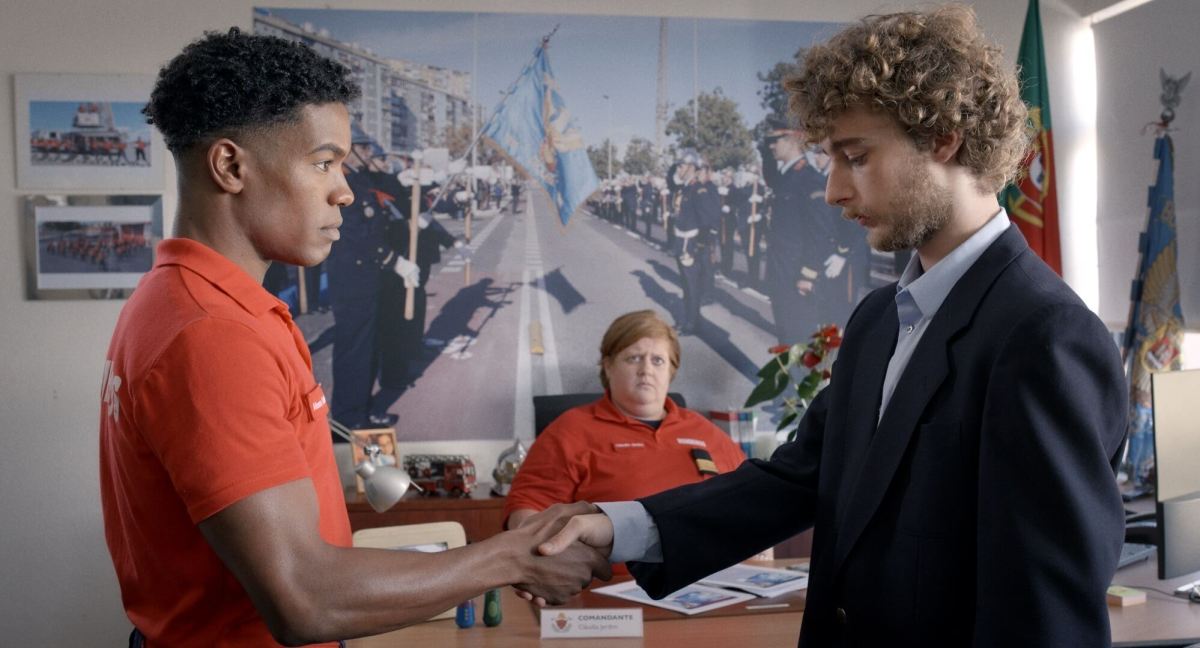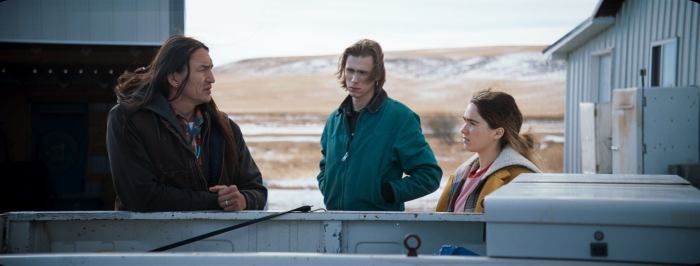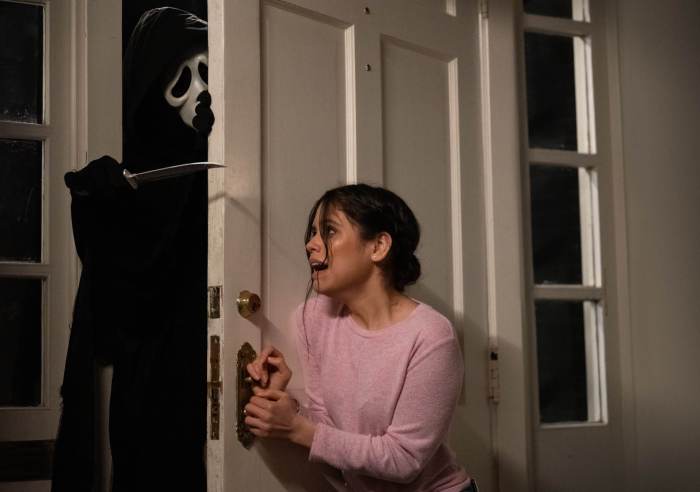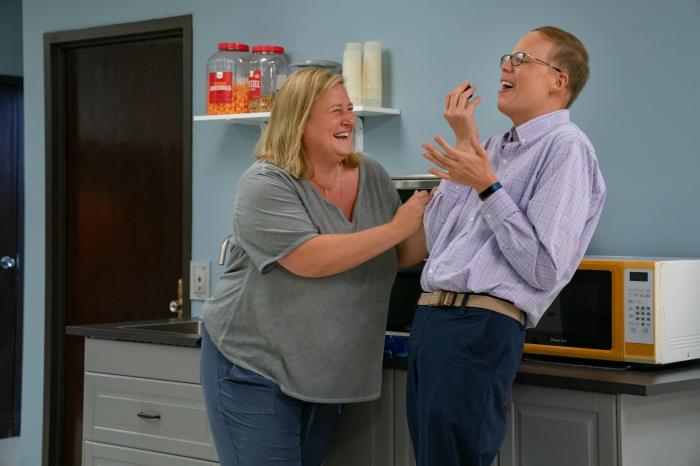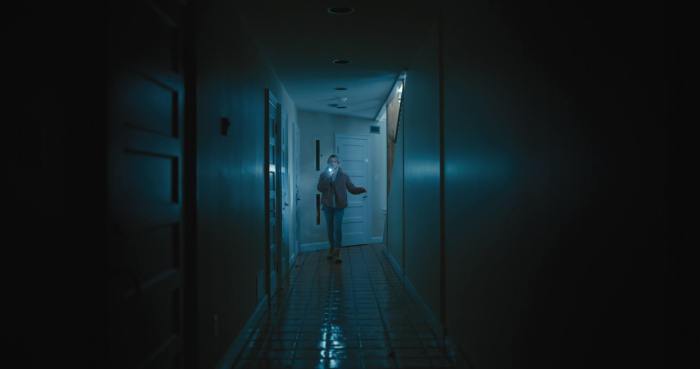The Toronto International Film Festival (TIFF), which unspooled September 8-18, is like the Fall Fashion Preview for cinema. Many of the biggest films of the year — and several likely Oscar hopefuls — received their North American debut at the festival. The crop of new movies included many LGBTQ films, from Billy Eichner’s comedy, “Bros” (out September 30), to Elegance Bratton’s “The Inspection,” which was selected as the closing night film for the New York Film Festival on October 14.
Here is a rundown of some of the queer films that screened this year at TIFF.
“Aristotle and Dante Discover the Secrets of the Universe”
“Aristotle and Dante Discover the Secrets of the Universe” is Trans writer/director Aitch Alberto’s superb adaptation of the award-winning YA novel by Benjamin Alire Sáenz. The title characters are two Mexican American teenagers in 1987 El Paso — cue 80s music needle drops — who first meet at a swimming pool. Introverted Aristotle aka Ari (magnetic newcomer Max Pelayo) learns to swim with the assistance of the outgoing Dante (Reese Gonzales). The two teens develop a close friendship that becomes a kind of bromance. However, the art-and-poetry-loving Dante drops a bombshell when his family moves to Chicago for a year — and then another when he comes out as gay. Will the teens’ relationship be the same when Dante returns? Alberto’s sensitivity is in every frame as the film traces the emotional ups and downs of these teens in ways that are poignant without being cloying. The framing of Ari reading one of Dante’s letters against a wall, or the boys spending time in Ari’s 1957 Chevy pickup, are achingly beautiful, right out of an Edward Hopper painting. As the film delivers all the feels in its conclusion, it is hard not to cry happy tears.
“Winter Boy”
Out gay writer/director Christophe Honoré’s most autobiographical film to date is an intimate character study about Lucas (Paul Kircher), a gay teen in France. His life changes when his father (played by Honoré) dies in a car accident. He, along with his mother, Isabelle (Juliette Binoche, excellent), and brother, Quentin (Vincent Lacoste), cope in different ways with the tragedy. Lucas goes to stay in Paris with Quentin and has a series of experiences — a conversation in a church; hooking up with a stranger (or two); and crushing on Quentin’s roommate Lilio (Erwan Kepoa Falé) — as he searches for truth and vows to live life on his own terms. However, he becomes emotionally overwhelmed and has episodes of acting out. Kircher gives a remarkably unselfconscious performance, which captures his fragility, despair, sullenness, hope, and courage. Honoré’s deeply moving film is unbearably sad but it also quite life affirming.
“Joyland”
In Pakistani director/cowriter Saim Sadiq’s extraordinary feature debut, “Joyland” — which won the Queer Palm and Un Certain Regard Jury Prize at Cannes — Haider (Ali Junejo) meets a transgender exotic dancer, Biba (Alina Khan), when he takes a job as one of her backup dancers. He also helps her out with a poster she needs and comes to her rescue when she is shamed on the subway. Haider wants to spend time with Biba because he is attracted to her; a scene of them in her apartment brims with sexual tension and it is dazzlingly shot with lights dancing on their faces. However, Haider is married to Mumtaz (Rasti Farooq), and while he does care for his wife, he struggles with his desires. “Joyland” shows how Haider, Biba, and Mumtaz, as well as several other characters, flout gender roles as they experience both empowerment and setbacks. The film also showcases trans life without condescension. Watching the main characters buck social conventions — or knuckle under them — is affecting because they reveal themselves in their most vulnerable moments. “Joyland” features crisp cinematography and artful framing — the film is gorgeous — but it is the trio of strong performances that are most illuminating and incandescent.
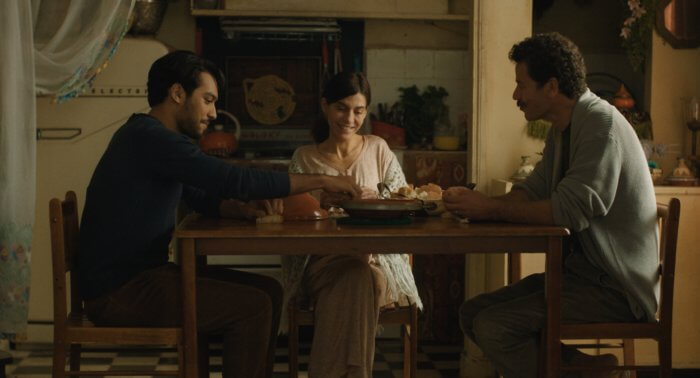
“The Blue Caftan”
“The Blue Caftan” is an exquisite slow-burn romantic drama from Morocco, a country where homosexuality is illegal. Halim (Saleh Bakri) is a maalem, a tailor who works painstakingly by hand. He sews gorgeous caftans that are sold in the shop he owns with his wife, Mina (Lubna Azabal). But they are behind in their work, and she is in ill health, which is why Halim is training Youssef (Ayoub Missioui), a handsome new apprentice, to learn this dying craft. The looks Halim and Youssef exchange are full of smoldering desire, and when they touch — as when Halim trains Youssef to cut a collar or guide a needle — it is downright erotic. “The Blue Caftan” subtly depicts the love that develops between Halim and Youssef, as well as Halim’s deep affection for Mina. How Halim grapples with his sexuality and his conflicted thoughts and feelings — he is periodically seen having anonymous sexual trysts with men at the local hammam — forms the heart of this heartbreaking character study. Bakri makes Halim’s internalized guilt and shame palpable and Azabal and Missioui respectively delivers steely and sensitive performances.
“Will-o’-the-Wisp” (“Fogo-Fátuo”)
“Will-o’-the-Wisp” (“Fogo-Fátuo”) is the latest provocation — dubbed a “musical fantasy” — by out gay Portuguese filmmaker João Pedro Rodrigues. An extended prologue introduces Prince Alfredo (Mauro Costa), whose parents are shocked by his decision to be a firefighter. As Alfredo pursues his interest in earnest, he is met with derision, but he persists. A hilarious episode has various nude and hunky firemen posing and asking art history student Alfredo to “name the painting” they are representing. When Alfredo also meets fellow firefighter Afonso (André Cabral), who trains him, the two men begin a relationship that starts with a seductive lesson in ventilating a victim and segues into a fabulously choreographed dance sequence. A later sex scene between the men has to be seen to be believed. “Will-o’-the-Wisp” jumps across time and genres as this queer romance plays out, but there are serious undercurrents as themes about race, class, colonialism, and privilege are raised. Rodrigues’ film, which will next screen at the New York Film Festival, is a naughty delight.
“Casa Susanna”
“Casa Susanna” is a poignant, affectionate documentary about a Catskills house for heterosexual cross-dressing men and trans folks in the 1950s and ‘60s, when dressing as not one’s gender was illegal. Director Sébastian Lifshitz uses fabulous photographs, archival footage, and interviews featuring two women who frequented the house, Katherine Cummings and Diana Merry-Shapiro, along with two descendants, Betsy Woldheim, whose father was a guest, and Gregory Bagarozy, whose grandmother Marie, married Tito, who was “Susanna.” The trans subjects recount anecdotes of “How I needed to be,” ranging from Katherine’s memory of adoring the feeling of being in a dress as a child to the young Diana praying that he would wake up as a girl. In addition, Betsy recounts the hours her father took to get dressed and finding her father’s favorite negligee, while Gregory recalls peeking into Club Wigwam during female impersonator shows as a child. But the interviewees also describe the courage of these men to reveal their “secret” lives to their wives — who were largely accepting — as well as the risks of the men being discovered or blackmailed. This is a talky but compelling documentary about a largely hidden queer history.
“Something You Said Last Night”
This is an auspicious debut by trans femme filmmaker Luis De Filippis about Ren (Carmen Madonia), a young, unemployed trans woman on vacation with her younger sister Sienna (Paige Evans), and their parents, Mona (Ramona Milano) and Guido (Joe Parro). De Filippis captures the family dynamics though shrewd, claustrophobic framing and scenes that present the characters in both intimate and intense moments.
The dialogue also reveals how the ties that bind sometimes strangle. Ren fights easily with Sienna over her vape, or a hat, or a phone, but she is also protective of her sister, too. Mona is critical of — and disappointed with — everyone, but while she is overbearing, she engenders sympathy, too. The film immerses viewers in these characters’ lives and their minidramas, which include Ren’s encounters with Guy (Augustus Oicle) who may be attracted to her. “Something You Said Last Night” features strong, lived-in performances by the ensemble cast as the characters all work through their pain and struggles, but it is the subtlety of the storytelling that makes this film so quietly powerful.
“Rosie”
“Rosie” is the feature debut by queer Cree filmmaker Gail Maurice, based on her short of the same name. It is precisely the kind of first-time effort that will either charm or annoy viewers. Rosie (Keris Hope Hill,) is a six-year-old Indigenous orphan in 1984 Montreal who is sent to live with her aunt Fred (Mélanie Bray), an artist. It is indicative of the film’s preciousness that the handover happens at a sex shop, where Fred works. However, she soon gets fired from her job. Now unemployed, Fred is also facing eviction from her apartment. She obviously cannot manage herself, much less a kid, and her efforts to ‘return” Rosie leads to abandonment issues for the young girl. But with the help of her cross-dressing best friends, Flo (Constant Bernard) and Mo (Alex Trahan, a standout), they form a “found family” and Rosie improves everyone’s life. Maurice’s low-budget film is scrappy and well-meaning—it briefly addresses how Indigenous people are treated—but its uneven tone, contrived situations, and broad performances make this strictly amateur hour.

